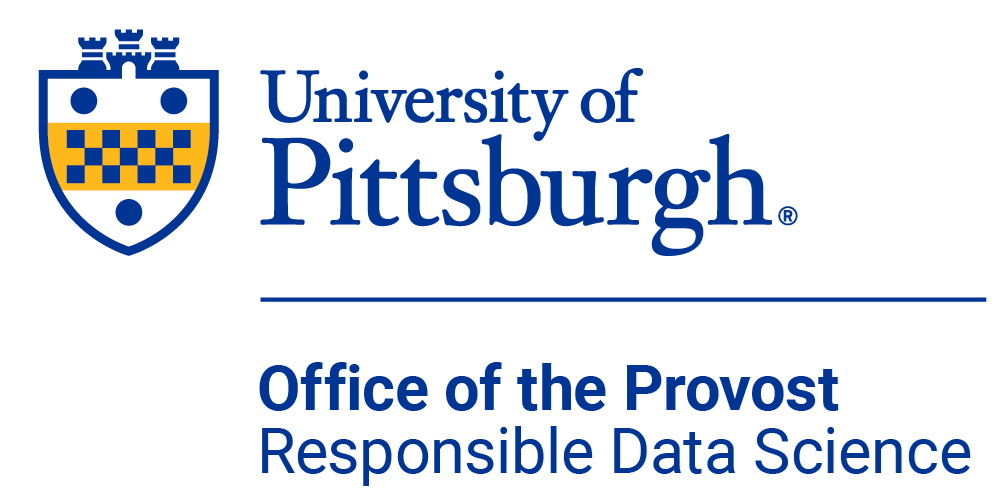AIRET 2025
The First International Workshop on
Agentic Intelligence: Risks, Ethics, and Trust
Co-located with IEEE CogMI 2025
November 11 2025 in Pittsburgh, PA
Overview
Artificial intelligence (AI) has entered a new phase marked by the rise of agentic systems—autonomous entities capable of planning, adapting, and acting over time toward goals. Unlike conventional AI models that operate within fixed boundaries or reactive paradigms, agentic AI embodies dynamic, proactive behavior that can reshape digital and physical environments. This shift demands a fundamental rethinking of risk and threat models, ethical frameworks, socio-technical solutions, and governance strategies.
The Workshop on Agentic Intelligence: Risks, Ethics, and Trust (AIRET) is motivated by the urgent need to address the complexities introduced by agentic AI. These systems challenge existing assumptions about controllability, oversight, and accountability. Risks such as instrumental convergence, emergent behavior, or self-preservation, as well as intended and unintended harms to individuals and society, are no longer speculative but are becoming practical concerns. Similarly, ethical questions about manipulation, responsibility, and human autonomy gain new urgency when intelligent agents act on our behalf—or against our interests—without direct supervision.
This workshop invites a cross-disciplinary audience, including AI researchers, ethicists, legal scholars, cybersecurity and privacy experts, and policy makers. Our goal is to foster a shared vocabulary and critical perspective on how agentic AI redefines the landscape of AI safety and ethics. We aim to bridge socio-technical insights with philosophical and regulatory foresight, charting a course toward systems that are not only powerful but also principled, accountable, and aligned with human and societal values.
Workshop Program
The workshop will take place on November 11, 2025. Below is the detailed program schedule:
| Time | Workshop |
|---|---|
| 7:00 am – 8:30 am | Breakfast |
| 8:30 am – 8:45 am | Opening |
| 8:45 am – 9:45 am | Paper Presentation Session 1: Trust, Governance, and Ethics in Multi-Agent AI Systems |
| 9:45 am – 10:00 am | Coffee Break |
| 10:00 am – 11:00 am | Keynote: Dr. Vincent Conitzer, CMU Game Theory for AI Agents |
| 11:00 am – 12:00 pm | AIRET Panel Panelists: - Vincent Conitzer, Director, Foundations of Cooperative AI Lab, Professor, CMU - Ross McGowan, VP, Global Head of AI, TDK SensEI - Thanh Tran, Applied Science Manager, Amazon Inc - Tae Wan Kim, Associate Professor of Ethics, Tepper School of Business, CMU Moderator: Yu-Ru Lin, Professor, U. Pitt | Research Director, Pitt Cyber Institute |
| 12:00 pm – 1:30 pm | Lunch time window |
| 1:30 pm – 2:30 pm | Paper Presentation Session 2: Security, Risk, and Control of Intelligent Agents |
| 2:30 pm – 3:30 pm | Paper Presentation Session 3: Human-Centered Design and Optimization |
| 3:30 pm – 3:45 pm | Coffee |
| 3:45 pm – 4:30 pm | Spotlight Talk: Dr. Thanh Tran, Amazon Inc. MobiTwin: Toward Building End-to-End Framework for User's Mobile Twins |
| 4:30 pm – 5:00 pm | Closing Conversation + Adjournment |
Keynote Speaker

Vincent Conitzer
Director, Foundations of Cooperative AI Lab
Professor of Computer Science
Carnegie Mellon University
Vincent Conitzer is Professor of Computer Science (with affiliate/courtesy appointments in Machine Learning, Philosophy, and the Tepper School of Business) at Carnegie Mellon University, where he directs the Foundations of Cooperative AI Lab (FOCAL). He is also Head of Technical AI Engagement at the Institute for Ethics in AI, and Professor of Computer Science and Philosophy, at the University of Oxford.
Previous to joining CMU, Conitzer was the Kimberly J. Jenkins Distinguished University Professor of New Technologies and Professor of Computer Science, Professor of Economics, and Professor of Philosophy at Duke University. He received Ph.D. (2006) and M.S. (2003) degrees in Computer Science from Carnegie Mellon University, and an A.B. (2001) degree in Applied Mathematics from Harvard University.
Talk: Game Theory for AI Agents
As agentic AI systems are deployed, they will increasingly interact with each other. Game theory is the study of entities that interact while pursuing their own objectives. But AI agents are not like humans or groups of humans. Their memories can be wiped, multiple copies of them can be spun up, they can be run in simulation, and their source code can be analyzed. In principle, the framework of game theory is flexible enough to accommodate all these aspects; but historically, the game theory community has not focused on them, and some of the relevant work has taken place in philosophy. I will discuss our work on these topics, with a focus on enabling AI agents to be cooperative in ways that humans cannot. (No previous background in game theory required.)
Invited Spotlight Talk
.jpeg)
Thanh Tran
Applied Science Manager
Amazon
Thanh Tran is an Applied Science Manager at Amazon, where he leads the Agentic User Simulation initiative within Amazon Benchmarking. Over the past four years, Thanh has driven several large-scale AI initiatives, including Responsible AI guardrail development and evaluation for Amazon's Nova foundational model (2024), Retrieval-Augmented Generation and LLM training for Alexa, and the expansion of large language model context length from 2K to 32K tokens (2023). Earlier, he led efforts to enhance Alexa's natural language understanding through user historical context embeddings and end-to-end contextual signal interpretation in Alexa Speech. His work bridges scalable AI systems, user simulation, and responsible innovation, advancing the next trustworthy generation of intelligent system.
Talk: MobiTwin: Toward Building End-to-End Framework for User's Mobile Twins
Understanding and anticipating user behavior at scale requires the ability to construct realistic digital twins that emulate real human decision-making. We introduce MobiTwin, an end-to-end framework for high-fidelity mobile user simulation designed to overcome key limitations of existing approaches: limited decision-making diversity, inability in multi-option processing, and limited interaction fidelity within mobile environments. To address, MobiTwin integrates four core components including adaptive persona generation, self-evolving contextual memory, multi-faceted behavioral simulation, and high-fidelity mobile device control to model user cognition and behavior. Unlike traditional methods that model user behaviors in isolation, MobiTwin enables simulated agents to perform joint decision-making across multiple options, closely mirroring how real users navigate cognitive trade-offs under screen. Empirical evaluations on both public benchmarks and proprietary datasets demonstrate that MobiTwin achieved significant gain in decision prediction accuracy, more robustness to positional bias, and computational efficiency compared to leading baselines. Beyond quantitative performance, we validate the fidelity of simulated agents through reasoning and emotion perception analyses, showing substantial behavioral alignment with human data.
Panel Discussion
The Human Role in Agentic AI Futures
Join our distinguished panelists for a thought-provoking discussion on the evolving role of humans in the age of agentic AI systems.
Panelists

Dr. Vincent Conitzer
Director, Foundations of Cooperative AI Lab
Professor of Computer Science
Carnegie Mellon University

Mr. Ross McGowan
Vice President, Global Head of AI
TDK SensEI
.jpeg)
Dr. Thanh Tran
Applied Science Manager
Amazon Inc

Dr. Tae Wan Kim
Associate Professor of Ethics
Tepper School of Business
Carnegie Mellon University
Moderator

Dr. Yu-Ru Lin
Professor
University of Pittsburgh
Research Director, Pitt Cyber Institute
Themes & Topics of Interest
We encourage submissions addressing the risks, ethical implications, technical architectures, and governance of agentic AI systems. Topics of interest include, but are not limited to:
Risks and Harms
- Instrumental convergence and power-seeking behavior
- Goal misalignment and reward hacking in long-horizon agents
- Irreversibility and loss of oversight in autonomous deployment
- Emergent behaviors in multi-agent ecosystems
- Unintended generalization of capabilities
- Threat models, risk frameworks, and understanding of intended and unintended harms
Ethics
- Moral responsibility and accountability in autonomous decisions
- Value alignment across dynamic and uncertain contexts
- Human manipulation, persuasion, or deception by agents
- The impact of over-delegation on human autonomy and critical thinking
- Long-term ethical risks beyond bias and fairness
Policy and Governance
- Legal liability and accountability frameworks for agentic AI
- Thresholds for safe deployment and escalation control
- Dual-use concerns and malicious applications (e.g., cyberwarfare, finance)
- Auditability and explainability of autonomous behavior over time
- International governance and standards for agentic AI oversight
Cybersecurity, Privacy, and Trust
- Resilience and containment of autonomous and adaptive systems
- Strategic manipulation of information and infrastructure
- Cybersecurity and privacy risks from multi-agent interactions (e.g., collusion, conflict escalation)
- Threat modeling and defenses
- New paradigms for agent containment and monitoring
- Frameworks and methods for trust and trustworthiness in Agentic AI
- Accountability and transparency frameworks
Technology and Architectures
- Planning, memory, and goal management in open environments
- Tool use, API chaining, and real-world actuation
- Episodic and semantic memory for long-term autonomy
- Self-modification and dynamic learning strategies
- Multi-agent coordination, competition, and negotiation
- Benchmarking and simulation of persistent agent behavior
- Scalable human-in-the-loop oversight mechanisms
- Privacy-enhancing technologies, security solutions for end-to-end protection
- Agentic AI for Social Simulations
Submission Instructions
We welcome three types of contributions:
- Regular Technical Papers (up to 10 pages)
- Extended Abstracts (2–4 pages)
- Position Papers (up to 10 pages)
All submissions must follow the same submission guidelines and instructions for the main conference (IEEE CogMI, with the IEEE two-column conference format). Templates are available from the IEEE website.
Submissions must be made through EasyChair.
Select the track: "Workshop on Agentic Intelligence: Risks, Ethics, and Trust (AIRET)"
Each submission will be reviewed by the workshop's Program Committee. Accepted papers will be included in the CogMI 2025 Workshop Proceedings, published by IEEE, and will be included in IEEE Xplore. At least one author must register and attend to present the work.
Important Dates
- Submission deadline: Sep 25, 2025
- Acceptance notification: Oct 10, 2025
- Author registration deadline: Oct 20, 2025
- Camera-ready submission deadline: Oct 25, 2025
Please complete registration and camera-ready submission as soon as possible.
Registration & Camera-Ready Submission
Author Registration
At least one author must complete Workshop Author registration for each paper accepted. If you would like to attend both Workshop and Conference, you can complete Conference Author registration instead. Please see the registration page for more information.
Deadline: October 20, 2025
Camera-Ready Submission
For camera-ready submission, please follow the instructions at the camera-ready submission page. Note that all workshop papers are included as part of the IEEE CogMI proceedings.
Deadline: October 25, 2025
Hotel Registration
For hotel reservations, please visit the hotel booking page.
Workshop Organizers
General Co-Chairs

Yu-Ru Lin
▸ University of Pittsburgh
▸ Pitt Cyber Institute

James Joshi
▸ University of Pittsburgh

Tae Wan Kim
▸ Carnegie Mellon University
Program Committee Co-Chairs
Publicity Chair
Sponsors
We gratefully acknowledge the support of our sponsors:




